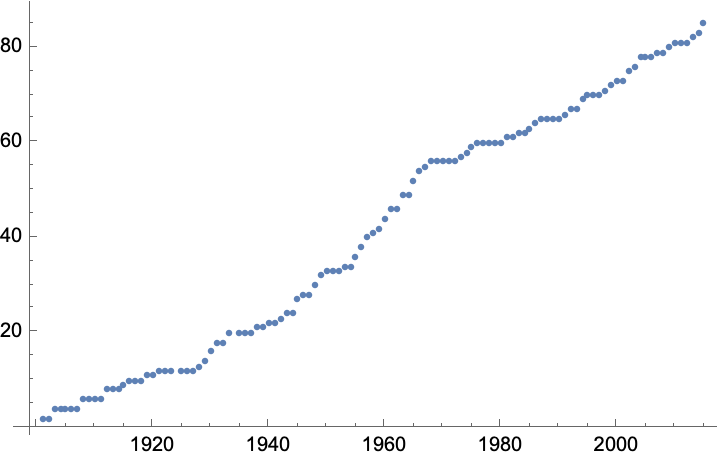Is the number of "breakthroughs" in mathematics decreasing, as it is claimed to be in other sciences?
Background for the question:
Park, M., Leahey, E. & Funk, R.J. Papers and patents are becoming less disruptive over time. Nature 613, 138–144 (2023). https://doi.org/10.1038/s41586-022-05543-x
A new study finds a steady drop since 1945 in disruptive feats as a share of the world’s booming enterprise in scientific and technological advancement.
Has a similar analysis been conducted for the field of mathematics (or, say, pure mathematics)? If yes, how do the findings compare?

